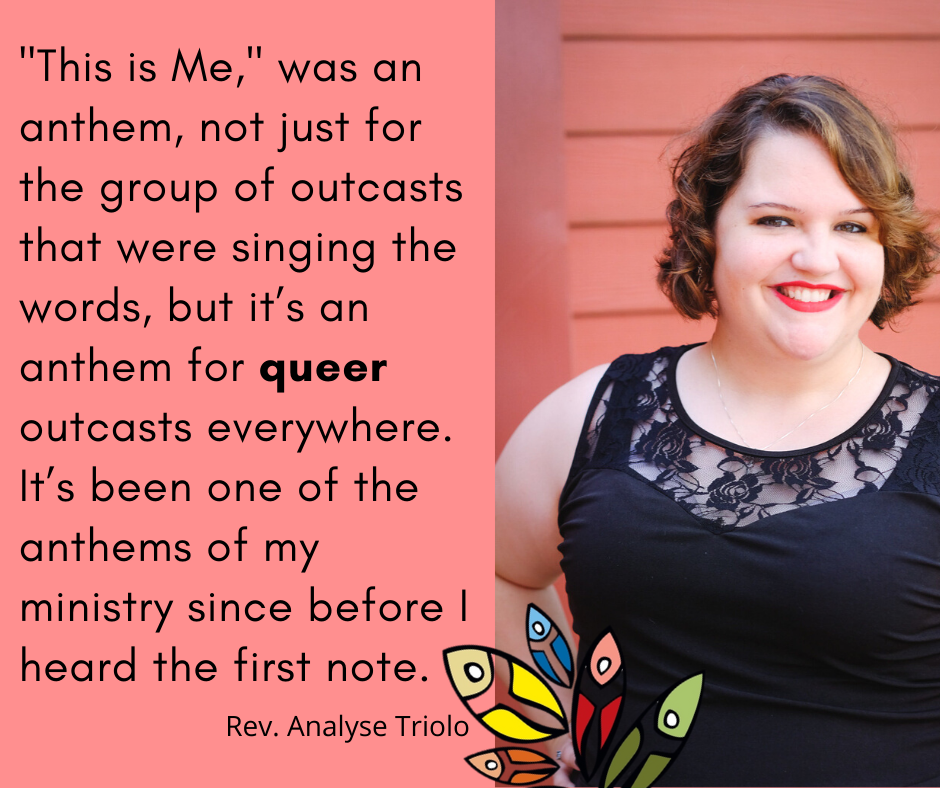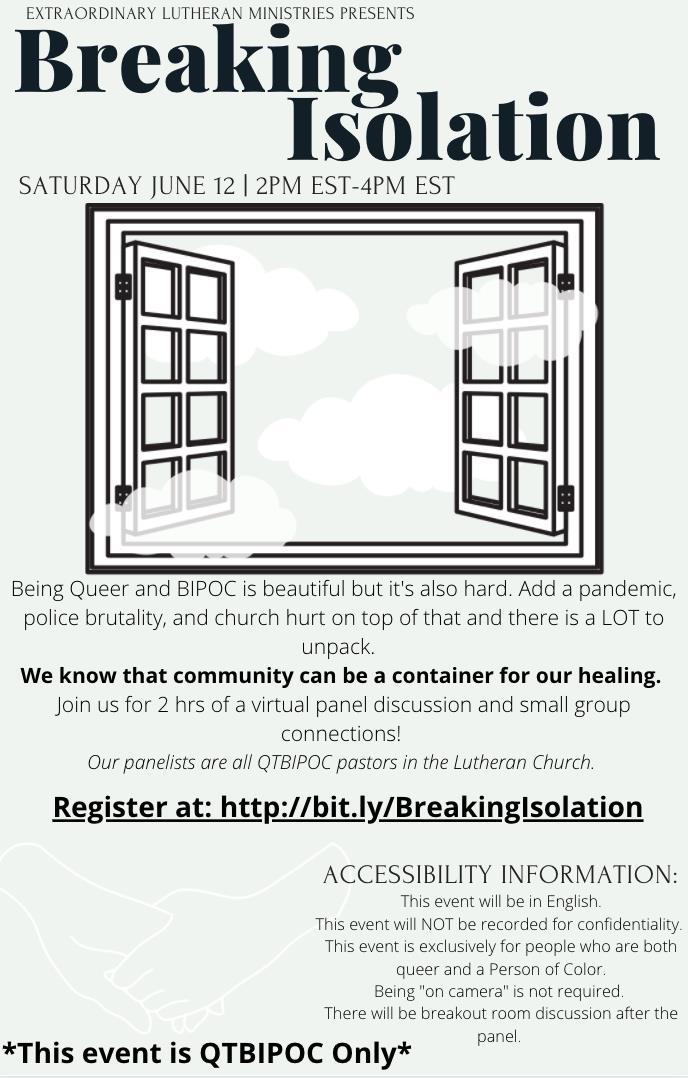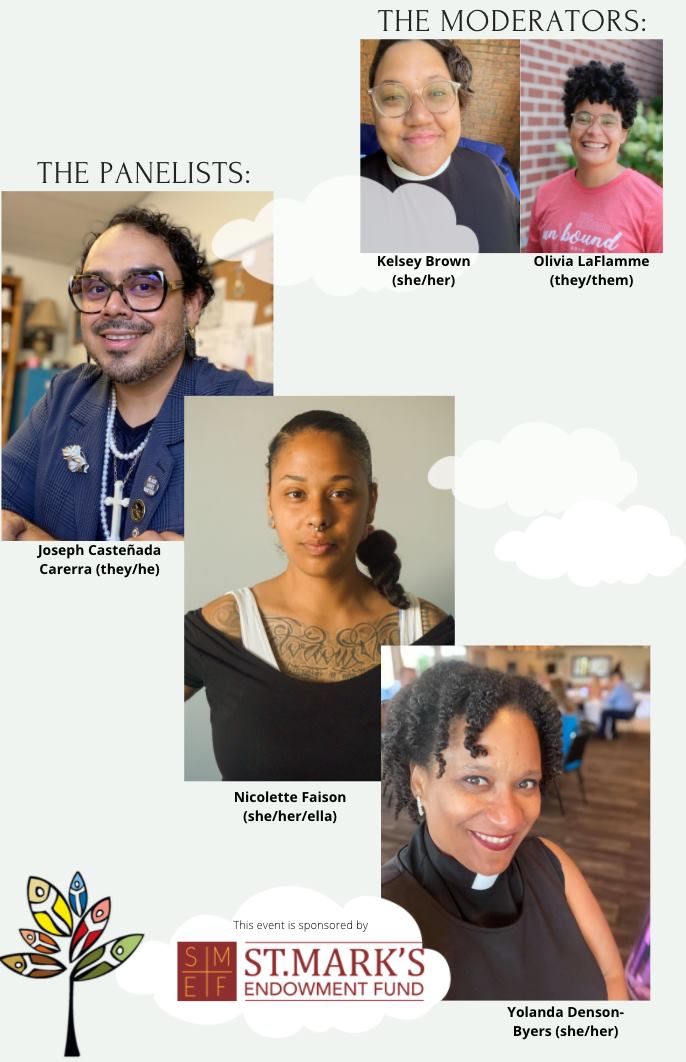For the Love of Lazarus
We know the story of Lazarus. As a seminarian I love learning about John 11:35 “Jesus wept.” As they say: it’s the shortest scripture in the bible. And, the word wept, in the aorist tense, is from the root δακρύω, dakruó, to weep, and is only found in the bible here in this verse.
What’s more, is that this weeping happens after Jesus asked for and was taken to where Lazarus laid in his tomb. Those around Jesus notice this weeping and call out: “Witness, see, how (Jesus) loved (Lazarus).” The word translated as “loved” in this text is translated from Greek, φιλέω, phileó, meaning “warm affection in intimate friendship, characterized by tender, heartfelt consideration and kinship.” This kind of cherishing of someone in Greek would probably include loving someone so deeply, so intimately, that it would be impossible not to kiss them.
Lazarus, a eunuch and his two barren sisters, Mary and Martha, seem to be Jesus’ family of choice, Jesus’ kin. In Bishop Rohrer’s book Queerly Lutheran, it states “Ancient Israelites believed there were more than two genders: male, female, barren women and Eunuchs. (p 63)” Rev. Dr. Nancy Wilson, now retired leader of Metropolitan Community Churches, shared in her book Outing the Bible that it was possible that Mary and Martha were sisters as much as Maureen and her lesbian partner, Joanne, are “sisters” in the musical Rent; when Maureen famously says in the song La Vie Boheme, “Hey, Mister, she’s my sister.”
Still, Jesus seems to love Lazarus so much that he thanks God, his Father, for hearing Jesus’ plea for Lazarus as the tomb is rolled away. (v 41) Jesus loves Lazarus so much that Jesus wants to be near him after being in a cave for four days (v 39). Jesus exclaims to Lazarus to come out (v 43) so that the crowd standing around Jesus may know that God sent Jesus here for this moment. (v 42). The name “Lazarus” itself is derived from Hebrew, אלעזר, Elʿāzār (Eleazar), meaning “God has helped.”
For the love of Lazarus, for his queer kin, Jesus helped.
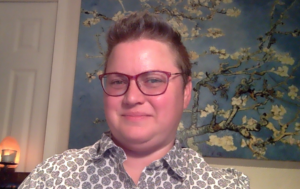 JJ Godwin(they/them) is a genderqueer certified peer supporter living in Texas with their spouse, Michelle; their dog, Radar, and cat, Summit. JJ is in their final year at Luther Seminary studying Divinity and seeking ordination in the Word and Service roster of the ELCA. JJ is in candidacy with the Deaconess Community and a member of Proclaim. JJ is called to mental health chaplaincy and can be found in peer support group ministry on HeyPeers.com and PeerHopes.com. JJ practices self-care sabbath by taking their blue Nissan Frontier 4×4, named Buckbeak, out for hiking and bike riding in nearby state parks, with spouse and dog.
JJ Godwin(they/them) is a genderqueer certified peer supporter living in Texas with their spouse, Michelle; their dog, Radar, and cat, Summit. JJ is in their final year at Luther Seminary studying Divinity and seeking ordination in the Word and Service roster of the ELCA. JJ is in candidacy with the Deaconess Community and a member of Proclaim. JJ is called to mental health chaplaincy and can be found in peer support group ministry on HeyPeers.com and PeerHopes.com. JJ practices self-care sabbath by taking their blue Nissan Frontier 4×4, named Buckbeak, out for hiking and bike riding in nearby state parks, with spouse and dog.
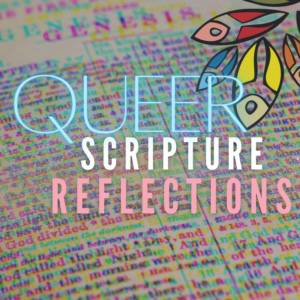
 The Rev. Carla Christopher Wilson (she/her/hers) is Assistant to the Bishop in Charge of Justice Ministries for Lower Susquehanna Synod and Associate Pastor of Faith Formation and Outreach for Lutheran Church of the Good Shepherd in Lancaster, Pennsylvania.
The Rev. Carla Christopher Wilson (she/her/hers) is Assistant to the Bishop in Charge of Justice Ministries for Lower Susquehanna Synod and Associate Pastor of Faith Formation and Outreach for Lutheran Church of the Good Shepherd in Lancaster, Pennsylvania. 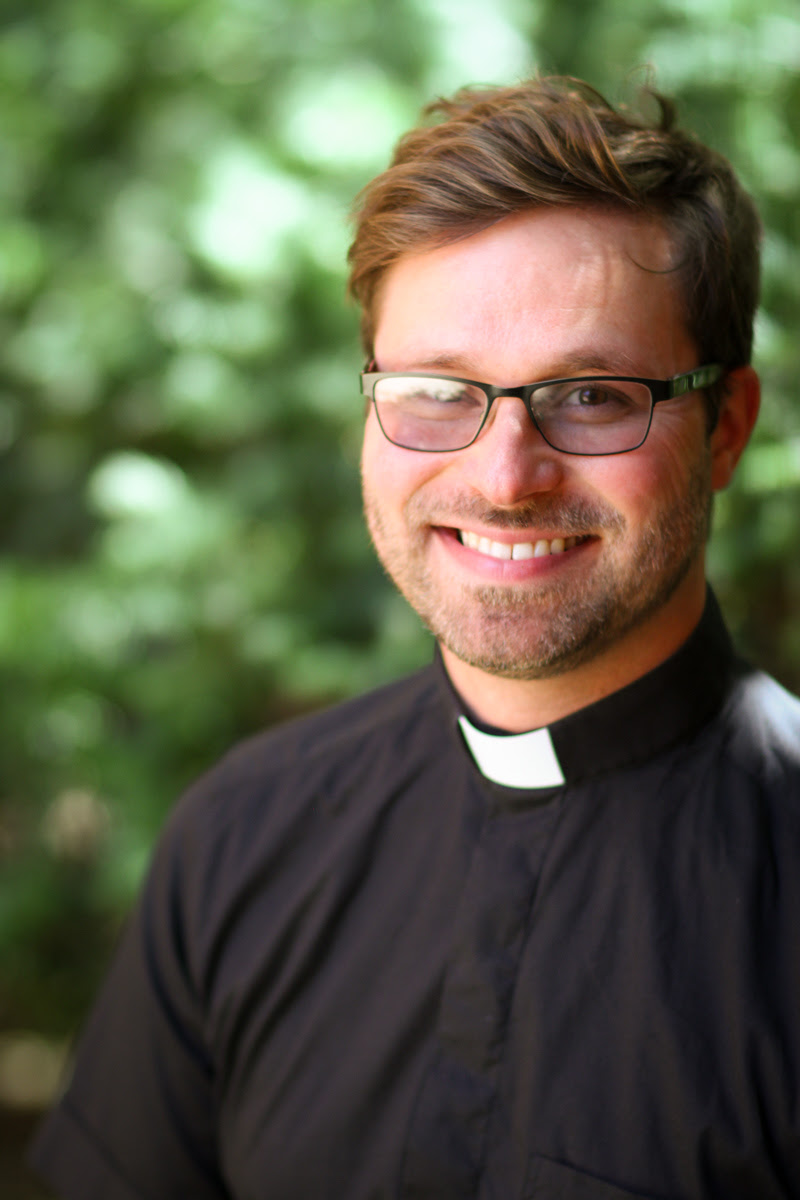 Alex Aivars (he/him) is currently in his first call as pastor of St. Stephen Lutheran Church in Lansing, MI. Since this is a part-time call, he also develops websites for businesses, non-profits, and other churches. In his spare time he likes to read, hike, bike, ski, and make art out of post-in notes.
Alex Aivars (he/him) is currently in his first call as pastor of St. Stephen Lutheran Church in Lansing, MI. Since this is a part-time call, he also develops websites for businesses, non-profits, and other churches. In his spare time he likes to read, hike, bike, ski, and make art out of post-in notes.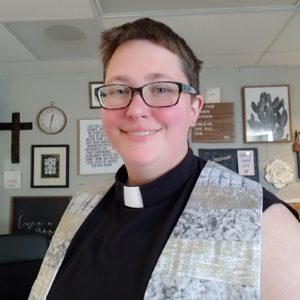 Rev. Tobi Fleck (they/them) currently serves as the associate pastor at The Dwelling, Winston-Salem, a faith community primarily for people who have or are currently experiencing homelessness. In their free time, they enjoy playing games with friends, reading young adult fiction, and spending time out in creation.
Rev. Tobi Fleck (they/them) currently serves as the associate pastor at The Dwelling, Winston-Salem, a faith community primarily for people who have or are currently experiencing homelessness. In their free time, they enjoy playing games with friends, reading young adult fiction, and spending time out in creation.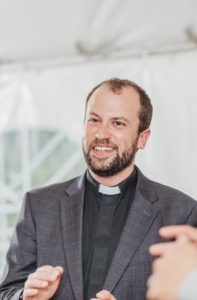
 Right now, you are shy and closeted. You aren’t confident or sure of yourself. You feel like a nobody surrounded by lots of somebodies. You’re trying to figure out who you are in this big, wide world. You don’t want to disappoint anyone. You have high expectations for yourself and the person you want to become.
Right now, you are shy and closeted. You aren’t confident or sure of yourself. You feel like a nobody surrounded by lots of somebodies. You’re trying to figure out who you are in this big, wide world. You don’t want to disappoint anyone. You have high expectations for yourself and the person you want to become. 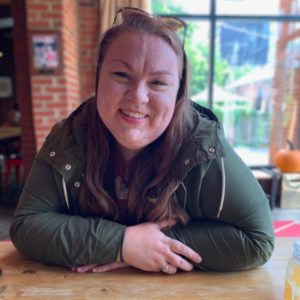 Jamie Ulrich (she/her) is a Candidate for Word and Sacrament Ministry in the Southwestern Pennsylvania Synod and is currently studying at Trinity Lutheran Seminary at Capital University. She is on internship at Epiphany Lutheran Church in Pickerington, Ohio. In her free time, Jamie enjoys reading fiction, hanging out with her cat, and watching The Great British Baking Show.
Jamie Ulrich (she/her) is a Candidate for Word and Sacrament Ministry in the Southwestern Pennsylvania Synod and is currently studying at Trinity Lutheran Seminary at Capital University. She is on internship at Epiphany Lutheran Church in Pickerington, Ohio. In her free time, Jamie enjoys reading fiction, hanging out with her cat, and watching The Great British Baking Show.
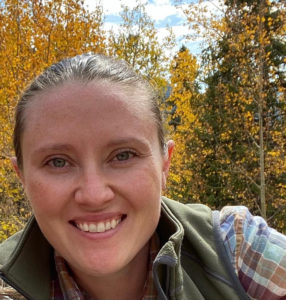 Chelsea Achterberg (she/her) is a southerner who is enjoying adapting to Colorado life. She currently serves as Pastor at All Saints Lutheran Church in Aurora and as an Army Reserve Chaplain. Chelsea and her wife Mandy enjoy hiking, exploring the west, and the antics of their house rabbit Mosby.
Chelsea Achterberg (she/her) is a southerner who is enjoying adapting to Colorado life. She currently serves as Pastor at All Saints Lutheran Church in Aurora and as an Army Reserve Chaplain. Chelsea and her wife Mandy enjoy hiking, exploring the west, and the antics of their house rabbit Mosby.


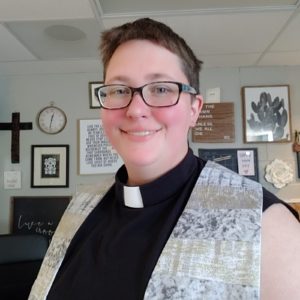 Rev. Tobi Fleck (they/them) currently serves as the associate pastor at The Dwelling, Winston-Salem, a faith community primarily for people who have or are currently experiencing homelessness. In their free time, they enjoy playing games with friends, reading young adult fiction, and spending time out in creation.
Rev. Tobi Fleck (they/them) currently serves as the associate pastor at The Dwelling, Winston-Salem, a faith community primarily for people who have or are currently experiencing homelessness. In their free time, they enjoy playing games with friends, reading young adult fiction, and spending time out in creation.